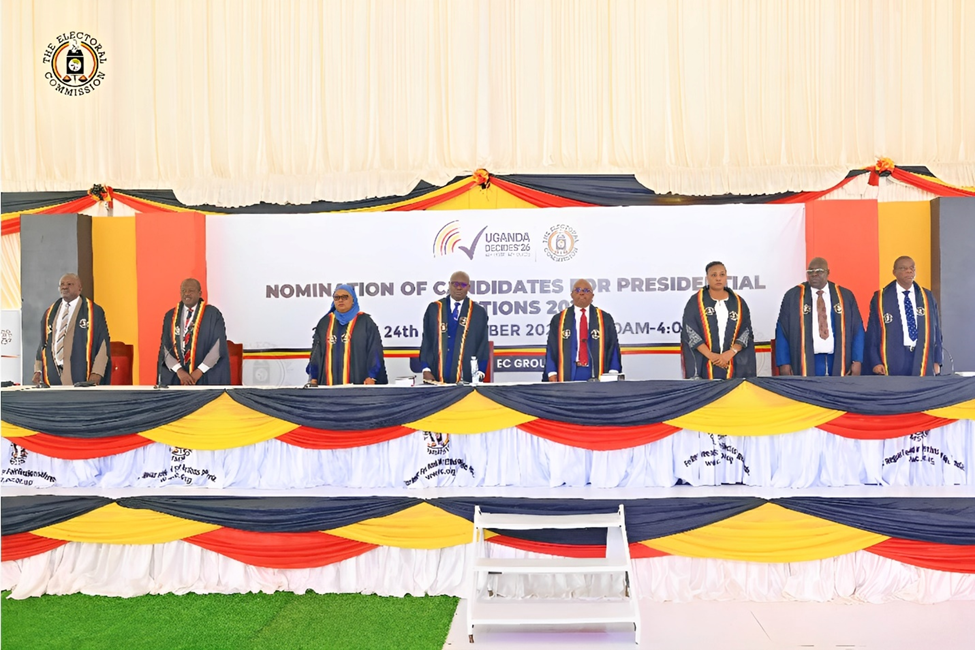By Ssenkayi Marvin Ezra
The road to Uganda’s 2026 General Elections entered a decisive phase on Wednesday, September 24, 2025, as the Electoral Commission (EC) concluded the two-day nomination of presidential candidates at its new headquarters in Lubowa. Eight aspirants were successfully vetted and cleared to contest the country’s top office.
Amongst them are incumbent President Yoweri Kaguta Museveni, in power since 1986, and Robert Kyagulanyi Sentamu (Bobi Wine), leader of the National Unity Platform (NUP) and runner-up in the 2021 elections. Their participation sets the stage for a competitive race.
The exercise, held on September 23-–24 under tight security, required aspirants to submit nomination forms, pay a non-refundable fee of twenty million shillings, prove Ugandan citizenship by birth, present academic qualifications equivalent to Advanced Level, and show support from at least 100 registered voters in two-thirds of the districts.
According to EC Chairperson Justice Simon Byabakama, all eight candidates met the legal requirements. He described the process as “a significant milestone in Uganda’s democratic journey,” emphasising transparency and adherence to the law.
The confirmed candidates are Yoweri Kaguta Museveni (NRM), Robert Kyagulanyi Sentamu (NUP), Gregory Mugisha Muntu (ANT), Joseph Elton Mabirizi (Conservative Party), Robert Kasibante (National Peasants Party), Mubarak Sserunga Munyagwa (Common Man’s Party), Nathan Nandala Mafabi (FDC), and Frank Bulira Kabinga (Revolutionary People’s Party).
While Museveni and Kyagulanyi dominate public attention, the additional candidates highlight Uganda’s multi-party framework and offer voters more choice. The nominations symbolise political pluralism and civic engagement while reinforcing the EC’s role in managing competition.
In the run-up to nominations, parties mobilised supporters, unveiled manifestos, and outlined policy priorities, sparking nationwide debates on governance, service delivery, economic recovery, and Uganda’s global position. The EC pledged to ensure a level playing field, with Byabakama stressing equal opportunity for all candidates and continued engagement with stakeholders to guarantee peaceful campaigns.
Nominations mark the official start of the campaign season, narrowing the field and focusing national attention on contenders and their visions. For voters, the cleared list frames discussions on education, healthcare, jobs, and foreign policy.
With nominations complete, campaigns officially open in October. Over the next four months, rallies, debates, and policy dialogues will dominate the political landscape ahead of Election Day in early 2026.
The Museveni–Kyagulanyi contest is already shaping up as a defining duel—continuity versus change, experience versus youthful energy. Yet the six other candidates may influence voter turnout, regional dynamics, and governance debates.
As the EC advances its electoral roadmap, voter education campaigns urge citizens to engage constructively, demand accountability, and resist divisive rhetoric.
The conclusion of the nominations confirms Uganda’s march toward 2026, a test of democratic institutions, political maturity, and citizens’ resolve to pursue peace, stability, and progress.


